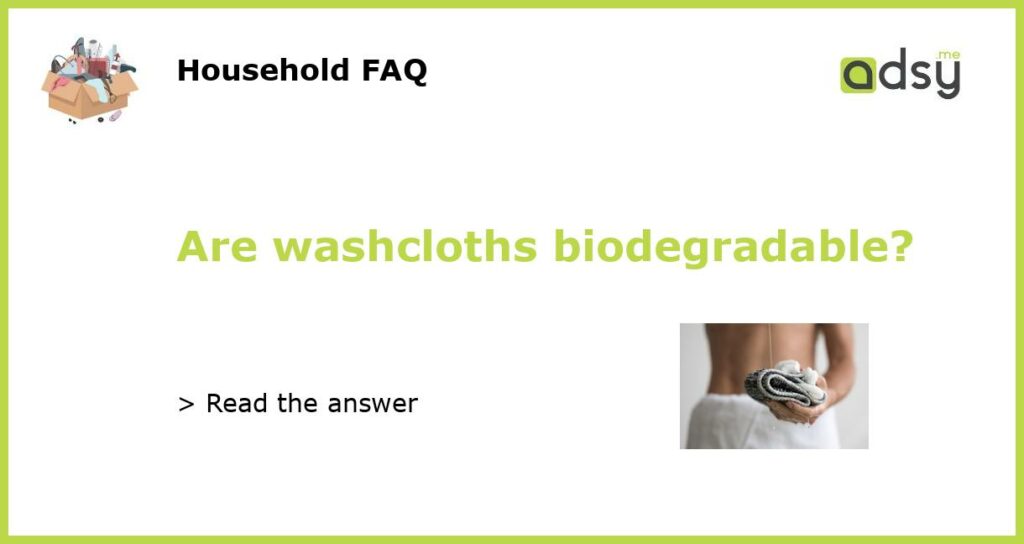What are washcloths made of?
Washcloths are commonly used in households and beauty routines. They are small square pieces of fabric used for cleaning and bathing. But have you ever wondered what they are made of? Washcloths can be made from a variety of materials including cotton, bamboo, microfiber, and synthetic blends. The most popular material for washcloths is cotton due to its soft and absorbent properties. Bamboo washcloths are also becoming more popular as they are eco-friendly and naturally antimicrobial.
Are washcloths biodegradable?
Biodegradability refers to the ability of a material to break down and return to nature over time. So, are washcloths biodegradable? The answer depends on the material they are made of. Cotton washcloths are biodegradable as they are made from a natural plant fiber. They will decompose over time and not contribute to environmental pollution. However, synthetic washcloths made from materials like polyester or nylon are not biodegradable. These synthetic fibers are derived from petroleum and do not break down easily in nature.
Eco-friendly alternatives to synthetic washcloths
If you are concerned about the environmental impact of synthetic washcloths, there are eco-friendly alternatives available. One option is to choose washcloths made from bamboo fiber. Bamboo is a highly renewable resource that grows quickly and does not require pesticides or fertilizers. Bamboo washcloths are also naturally antimicrobial, making them ideal for personal care routines. Another alternative is washcloths made from organic cotton. Organic cotton is grown without the use of harmful chemicals and is biodegradable. These options provide a more sustainable choice for those looking to reduce their ecological footprint.
How to dispose of washcloths responsibly
To minimize the environmental impact of washcloths, it is important to dispose of them responsibly. If you are using biodegradable cotton or bamboo washcloths, they can be composted. Make sure to remove any non-biodegradable elements such as plastic buttons or embroidery before composting. These can be recycled or disposed of separately. If you are using synthetic washcloths, it is best to avoid throwing them in the trash as they will end up in landfills and contribute to pollution. Instead, consider repurposing them for cleaning or donate them to textile recycling programs. These programs turn old textiles into new materials or repurpose them for other uses.
Washcloths can be made from a variety of materials, and their biodegradability depends on the material they are made of. Cotton and bamboo washcloths are biodegradable, while synthetic washcloths made from materials like polyester or nylon are not. If you are looking for eco-friendly alternatives, choose washcloths made from bamboo fiber or organic cotton. To dispose of washcloths responsibly, compost biodegradable ones and repurpose or recycle synthetic ones. By making conscious choices about the materials we use and how we dispose of them, we can reduce our impact on the environment.






